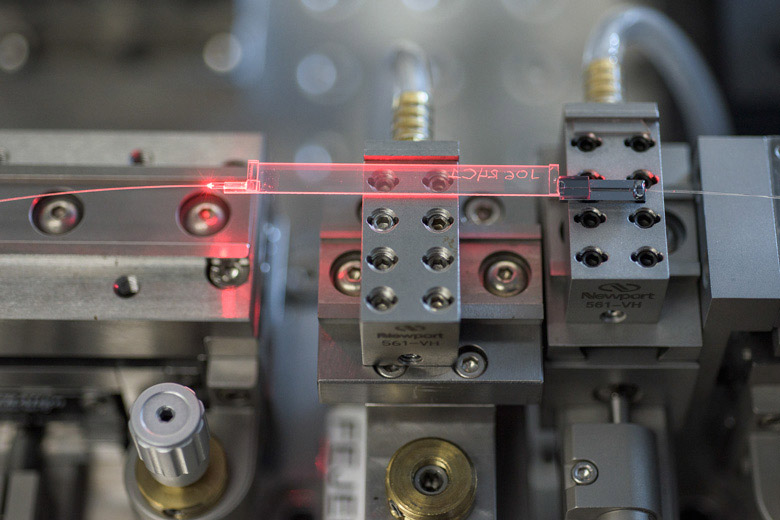
The European Commission and Japan have just announced a series of research projects to help speed up replacement of their soon-to-be-antiquated internet backbones. One of them, the STRAUSS project, will be shooting for 100Gbps fiber optic speeds -- a whopping 5,000-fold gain over current Euro data rates. It'd do so by combining new optical packet switching technology, optical transceivers and other hardware with updated controlling software. The next step will be testing it on a large scale at sites across the EU and Japan. That project, along with five others aimed at boosting terrestrial and wireless bandwidth security and capacity, will receive €18 million in funding over the next several years. The EU commission estimates that traffic will increase 12-fold in the next five years, so if you don't want any more internet lag than you already have, you may want to wish them Godspeed.
Filed under: Science, Internet
Comments
Source: European Commission
 Until now, Google has had to build Fiber's gigabit networks the hard way, either from scratch or by making deals to use some existing lines. It's about to try something new, though: the search firm is bringing Fiber to Huntsville, Alabama by using a...
Until now, Google has had to build Fiber's gigabit networks the hard way, either from scratch or by making deals to use some existing lines. It's about to try something new, though: the search firm is bringing Fiber to Huntsville, Alabama by using a...
 Until now, Google has had to build Fiber's gigabit networks the hard way, either from scratch or by making deals to use some existing lines. It's about to try something new, though: the search firm is bringing Fiber to Huntsville, Alabama by using a...
Until now, Google has had to build Fiber's gigabit networks the hard way, either from scratch or by making deals to use some existing lines. It's about to try something new, though: the search firm is bringing Fiber to Huntsville, Alabama by using a...
 Researchers at Stanford University announced Tuesday that they had successfully leveraged the "spooky" interaction of entangled electrons to send a message between them over a span of 1.2 miles. This is by far the longest distance that scientists hav...
Researchers at Stanford University announced Tuesday that they had successfully leveraged the "spooky" interaction of entangled electrons to send a message between them over a span of 1.2 miles. This is by far the longest distance that scientists hav...
 New York isn't the only city getting up in Verizon's grill over the provider's reluctance to roll out FiOS across its service areas. The mayors of 13 large US cities (plus a mayoral candidate in Philadelphia) have sent a letter to Verizon CEO Lowe...
New York isn't the only city getting up in Verizon's grill over the provider's reluctance to roll out FiOS across its service areas. The mayors of 13 large US cities (plus a mayoral candidate in Philadelphia) have sent a letter to Verizon CEO Lowe...





